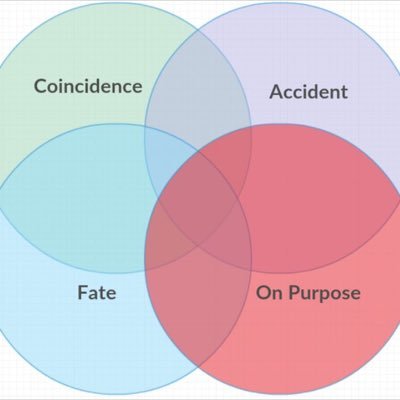How often do you think about free will? Almost never? Perfect. Here’s a summary of what it means and what it’s meaning means.
Whether or not you believe in free will is largely a product of how you interpret language.
Some people interpret free will to mean freedom of choices. In this sense free will clearly exists. Should I raise my right hand or left hand? I choose left! And up goes my left hand. See, free will works!
Others interpret free will to mean what it literally says it means. Freedom of will. In this sense free will is pretty clearly an illusion.
The point of this post is to explain that people who say free will doesn’t exist are not saying that choices are irrelevant. They are merely saying that the reasons behind those choices are not up to us.
Here’s a passage from Sam Harris, author of the book Free Will (very fitting title), that explains this point extremely well...
“How, for instance, does one become a pediatric surgeon? Well, you must first be born, with an intact nervous system, and then provided with a proper education. No freedom there, I’m afraid. You must also have the physical talent for the job and avoid smashing your hands at rugby. Needless to say, it won’t do to be someone who faints at the sight of blood. Chalk these achievements up to good luck as well. At some point you must decide to become a surgeon—a result, presumably, of first wanting to become one. Will you be the conscious source of this wanting? Will you be responsible for its prevailing over all the other things you want but that are incompatible with a career in medicine? No. If you succeed at becoming a surgeon, you will simply find yourself standing one day, scalpel in hand, at the confluence of all the genetic and environmental causes that led you to develop along this line. None of these events requires that you, the conscious subject, be the ultimate cause of your aspirations, abilities, and resulting behavior. And, needless to say, you can take no credit for the fact that you weren’t born a psychopath.”
One of the misunderstandings that you get from people when explaining the illusion of free will is the misinterpretation that it is synonymous with determinism. To say that free will doesn’t exist is not to say that anything in life has been pre-determined. To say that free will doesn’t exist is simply to say that we are not in control of the thoughts that arise in our minds. Thoughts tend to be the basis for our actions, and because of this we can largely attribute our actions to uncontrollable subconscious activity.
The implications of the free will discovery might be a lot bigger than you realize. Sam Harris argues that properly understanding this concept should reduce our hatred for those who do evil things, because people have no control over things like genes, childhood experience, etc.
But even though we have limited control over our thoughts, we can still use our thoughts to influence other people’s thoughts (which is exactly what I’m doing here!). So the realization that much of your life is merely a product of subconscious brain activity probably shouldn’t turn you into a nihilist.
However, if you’re now suffering from fear of having no control over your next impulses… good luck dealing with that.

